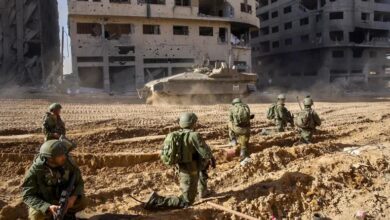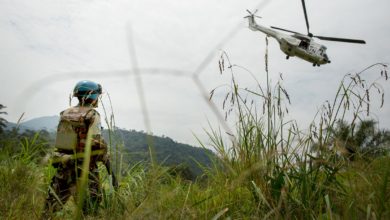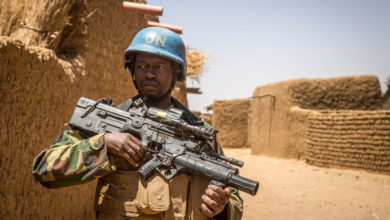Forces aligned with the Libyan government seized control of a strategic oil field in the country’s southwest on Wednesday, November 27, prompting retaliatory airstrikes by forces aligned with rogue field marshal Khalifa Haftar.
Libya’s National Oil Corporation said it shut down production at el-Feel oil field after the fighting began, citing the company’s priority of protecting staff.
“There have been airstrikes at the gates of the el-Feel oil field and inside a housing compound at the field used by NOC personnel,” said Mustafa Sanallah, the NOC’s chairperson, according to the body’s official Twitter account.
“NOC staff are protected in safe areas, but they cannot resume their normal duties. Production will remain shuttered until military activity ceases and all military personnel withdraw from NOC’s area of operations,” Sanallah said.
A spokesperson for the NOC did not immediately return a request for comment.
1/3 #NOC has shut production at the #El-Feel oil field due to ongoing military activity in the area. pic.twitter.com/hPgzMLFsaS
— National Oil Corporation المؤسسة الوطنية للنفط (@NOC_Libya) November 27, 2019
The United Nations Support Mission in Libya expressed “grave concerns” over the fighting in a statement on Wednesday.
“UNSMIL joins the National Oil Company (NOC) in calling for an immediate cessation of military operations near the oil fields to protect civilian staff and oil infrastructure,” the statement read.
“The Mission reiterates that Libya’s natural resources belong to all Libyans and must not be allowed to become an element in the current conflict. Obstructing the oil production will affect all Libyans across the country and add to their suffering,” UNSMIL said.
The U.N. statement stressed that Libya’s oil infrastructure “should remain under the exclusive control of the NOC.”
El-Feel produces around 75,000 barrels per day, according to UNSMIL.
Haftar, a former general under Qaddafi, consolidated power with military campaigns beginning in 2014 in the country’s east and later, in 2019, in Libya’s south, before launching an offensive in April against the U.N.-backed Libyan Government of National Accord, based in Tripoli.
The offensive, which has killed more than 1,000 people according to the World Health Organization, has largely ground to a halt in the Tripoli suburbs.
Haftar and the affiliated Tobruk-based government in the east currently control the majority of Libya’s oil fields and refineries, but have been blocked from selling it to international markets via the NOC by the U.S. and U.N.
Senior U.S. officials met with Haftar earlier this week to discuss steps towards a ceasefire between his side and the U.N.-backed GNA, including “concrete efforts to address militias and extremist elements, and the distribution of resources so they benefit all Libyans.”
Libya has been mired in conflict since the 2011 uprising backed by NATO air strikes that toppled and killed long-time leader Moammar Qaddafi.











